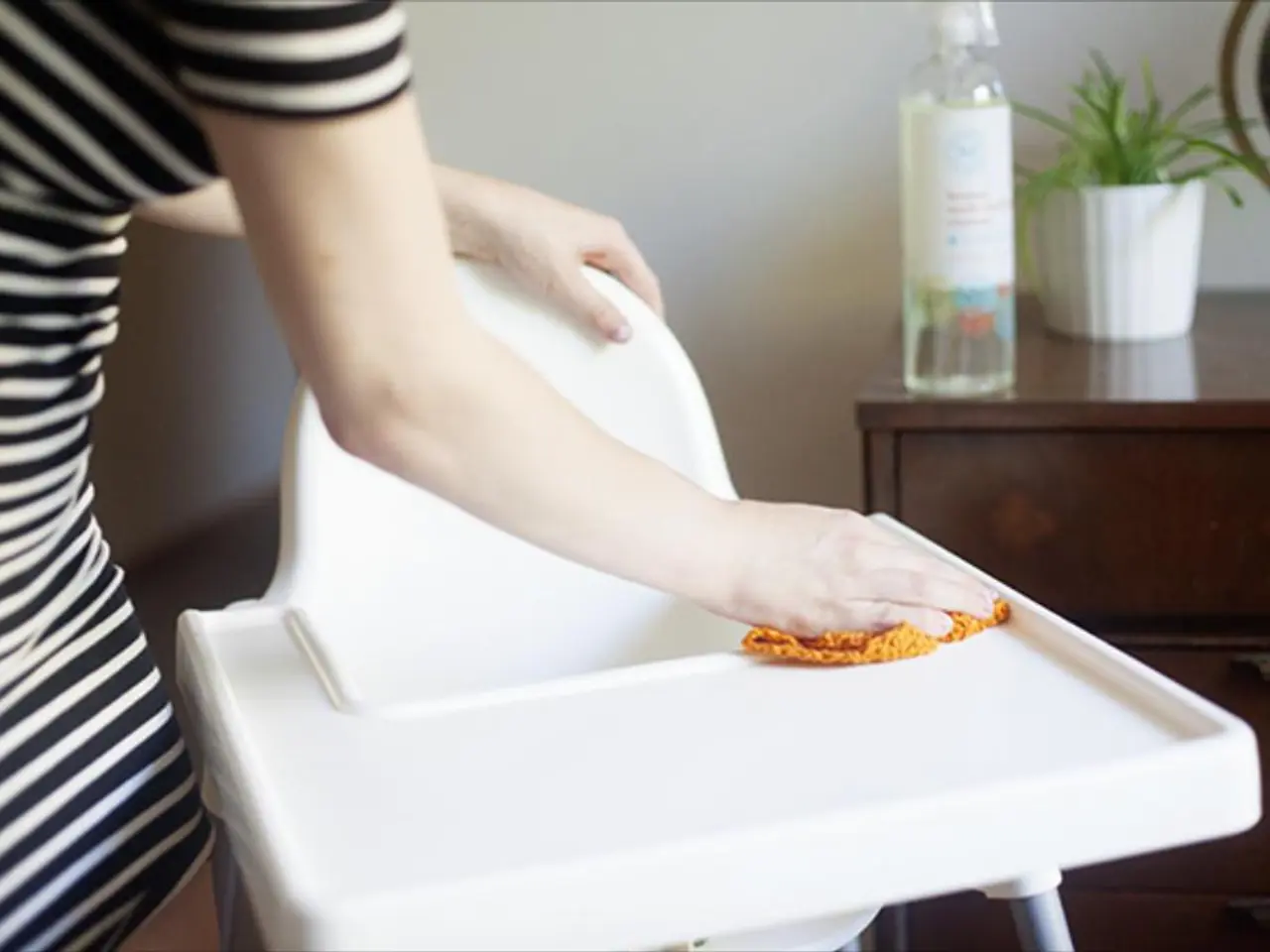International Report on Cleaning Habits Worldwide, unveiled by Kärcher
In a comprehensive study conducted by Kärcher, the world's leading provider of cleaning technology, an international investigation into cleaning behaviour and its impact on well-being was carried out across ten countries. The study, which surveyed at least 1,000 respondents per country in Germany, the Netherlands, Austria, France, Belgium, UK, Poland, Japan, Australia, and the USA, aimed to uncover the habits and attitudes towards cleanliness among various nations.
The survey, conducted by Dynata in May 2025, revealed some fascinating insights. For instance, a dust-free environment is highly valued by Germans, with 71% of respondents preferring it for their well-being and health. Similarly, the Japanese particularly emphasise a clean toilet, with 79% of respondents desiring a 79% dust-free environment for a healthy feeling.
Cleanliness was found to have a positive impact on sleep quality in several countries, including Australia, Belgium, the Netherlands, and Japan. In Germany, 83% of respondents reported feeling better after cleaning, with 80% finding a sense of balance and clarity, 73% feeling more motivated and energised, and 83% finding a sense of accomplishment in cleaning.
Interestingly, cleanliness is considered a form of exercise by a significant number of people in Poland, France, and the Netherlands. In Germany, cleanliness is more of a hygiene necessity, with 83% of respondents primarily satisfying their hygiene needs.
The study also showed that cleaning reduces stress and brings more satisfaction to daily life. However, the approach to cleaning varies among countries. For instance, while 66% of Germans treat themselves after cleaning, half of Americans relax in front of the TV, and 76% of Japanese reward themselves with food or drinks. Modesty, rather than reward, seems to be the cleaning motto for many Germans.
The study also addressed the role of cleanliness in relationships. In Germany, cleaning is not a major source of conflict, with only 5% reporting regular disputes and only 4% admitting to liking their partner less due to an unequal workload.
Unexpected visits can lead to stress-inducing "last-minute cleaning" in the USA and UK. Conversely, a clean bed is a significant comfort factor worldwide, with 76% of Britons, 80% of Austrians, and 83% of Dutch people agreeing.
The data from this study is available at www.kaercher.com. The PDF titled "Kaercher_InternationalStudy2025_DE.pdf" is 1.0 MB in size.
In conclusion, Kärcher's international study provides valuable insights into the global attitudes towards cleanliness and its impact on well-being. The study underscores the importance of cleanliness in various aspects of life, from physical health to relationships and mental well-being. For more detailed findings, we encourage readers to visit the Kärcher website and explore the comprehensive report.
- Incorporating cleaning as a form of exercise is a common practice among people in Poland, France, and the Netherlands, which suggests a connection between cleanliness and fitness-and-exercise.
- Nutrition and cleanliness seem to intersect in Japan, as 76% of respondents reward themselves with food or drinks after cleanings, implying a potential link between cleanliness and home-and-garden activities, like cooking or meal preparation.
- A dust-free environment is prioritized by people across countries for health-and-wellness reasons. In Germany, 71% of respondents value it for their well-being, while in Japan, 79% of respondents prefer a 79% dust-free environment to maintain a healthy feeling, indicating the significance of cleanliness in lifestyle and health.




